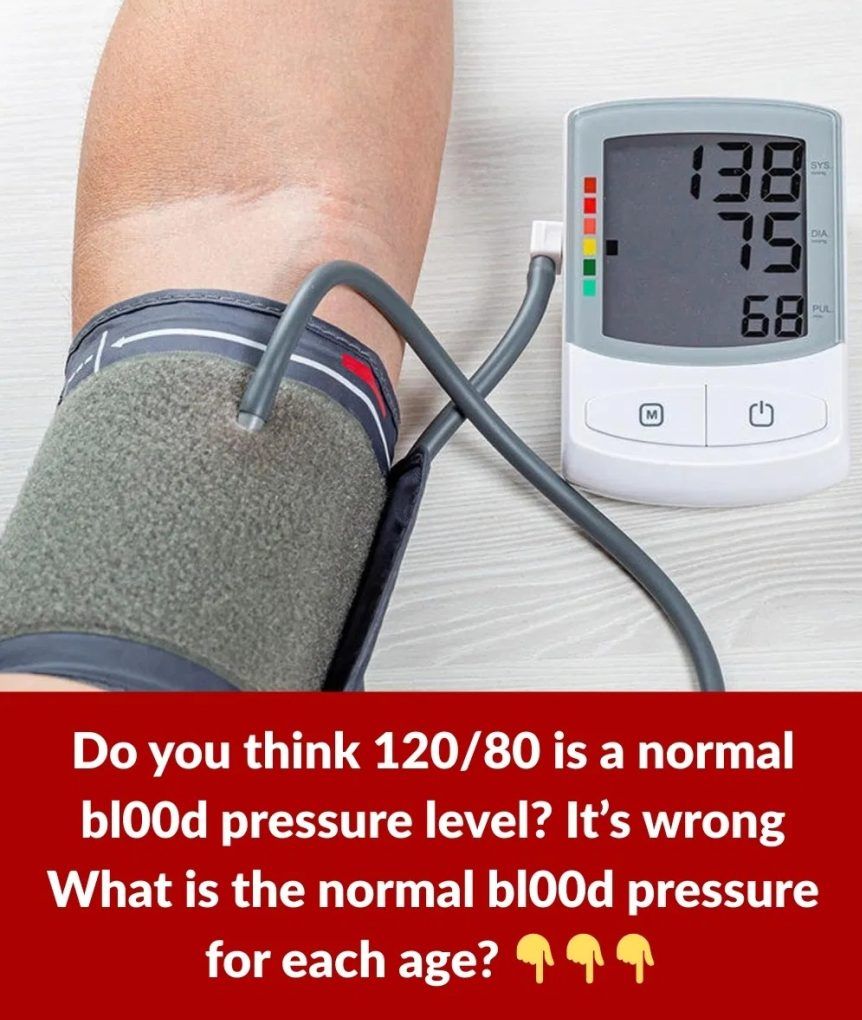ADVERTISEMENT
ADVERTISEMENT
ADVERTISEMENT
What Is the Normal Blood Pressure for Each Age?
Blood pressure is more than just a routine number checked at the doctor’s office — it’s a key indicator of your heart’s overall health. As we grow older, keeping track of these numbers becomes even more important.
Understanding how blood pressure changes with age, and knowing what’s considered normal for your age group, can help you take proactive steps to reduce the risk of heart disease, stroke, and kidney problems.
Why Blood Pressure Matters
Blood pressure measures the force of blood pushing against your artery walls as your heart pumps. These readings give insight into the strength of your cardiovascular system and help identify potential health risks early.
While 120/80 mm Hg is often cited as the ideal blood pressure, normal values can vary based on age, lifestyle, and individual health conditions.
General Blood Pressure Categories
| Blood Pressure Category | Systolic (Top Number) | Diastolic (Bottom Number) |
|---|---|---|
| Low | Less than 90 | Less than 60 |
| Optimal | Less than 120 | Less than 80 |
| Normal | 120–129 | 80–84 |
| Normal to High | 130–139 | 85–89 |
| High | 140+ | 90+ |
A reading around 120/80 mm Hg is considered typical for most adults.
Average Blood Pressure for Children and Teens
| Age Group | Systolic (mm Hg) | Diastolic (mm Hg) |
|---|---|---|
| Newborns (0–1 month) | 60–90 | 20–60 |
| Infants | 87–105 | 53–66 |
| Toddlers | 95–105 | 53–66 |
| Preschoolers | 95–110 | 56–70 |
| School-aged children | 97–112 | 57–71 |
| Adolescents | 112–128 | 66–80 |
Average Adult Blood Pressure by Age and Gender
| Age Group | Women (Average) | Men (Average) |
|---|---|---|
| 18–39 years | 110/68 mm Hg | 119/70 mm Hg |
| 40–59 years | 122/74 mm Hg | 124/77 mm Hg |
| 60+ years | 139/68 mm Hg | 133/69 mm Hg |
How Aging Influences Blood Pressure
As you age, the likelihood of developing high blood pressure increases. Here’s what contributes to the rise:
1. Arterial Stiffness
Blood vessels naturally lose flexibility over time, making it harder for blood to travel through them and increasing pressure.
2. Plaque Buildup
Fatty deposits can accumulate inside arteries, narrowing their pathways and raising blood pressure.
3. Hormonal & Kidney Changes
Aging affects how the body handles salt, fluid balance, and hormones — all of which play major roles in blood pressure regulation.
These age-related changes make hypertension a major risk factor for heart attacks, strokes, and vascular dementia in older adults.
How to Maintain Healthy Blood Pressure at Any Age
Whether you are young or aging gracefully, these habits can help keep your blood pressure within a healthy range:
Maintain a Healthy Weight
Extra weight puts strain on the heart. Even modest weight loss can help lower blood pressure.
Follow a Heart-Healthy Diet
Focus on:
-
Fruits and vegetables
-
Whole grains
-
Lean protein
-
Low-fat dairy
Avoid:
-
Excess salt
-
Saturated and trans fats
-
Added sugars
The DASH diet is especially effective for lowering blood pressure.
Stay Active
Aim for 150 minutes of moderate exercise weekly. Activities like walking, cycling, or swimming improve circulation and heart strength.
Quit Smoking
Smoking damages blood vessels and instantly raises blood pressure. Quitting brings immediate and long-term benefits.
Limit Alcohol
Too much alcohol increases blood pressure over time. Keep intake moderate:
-
Women: 1 drink per day
-
Men: 2 drinks per day
Final Thoughts
High blood pressure becomes more common as we age, but it doesn’t have to be unavoidable. By understanding how your body changes over time and adopting healthy daily habits, you can protect your cardiovascular system and enjoy a healthier, stronger heart throughout your life.
For more Recipes follow me in Facebook , Pinterest !
ADVERTISEMENT

